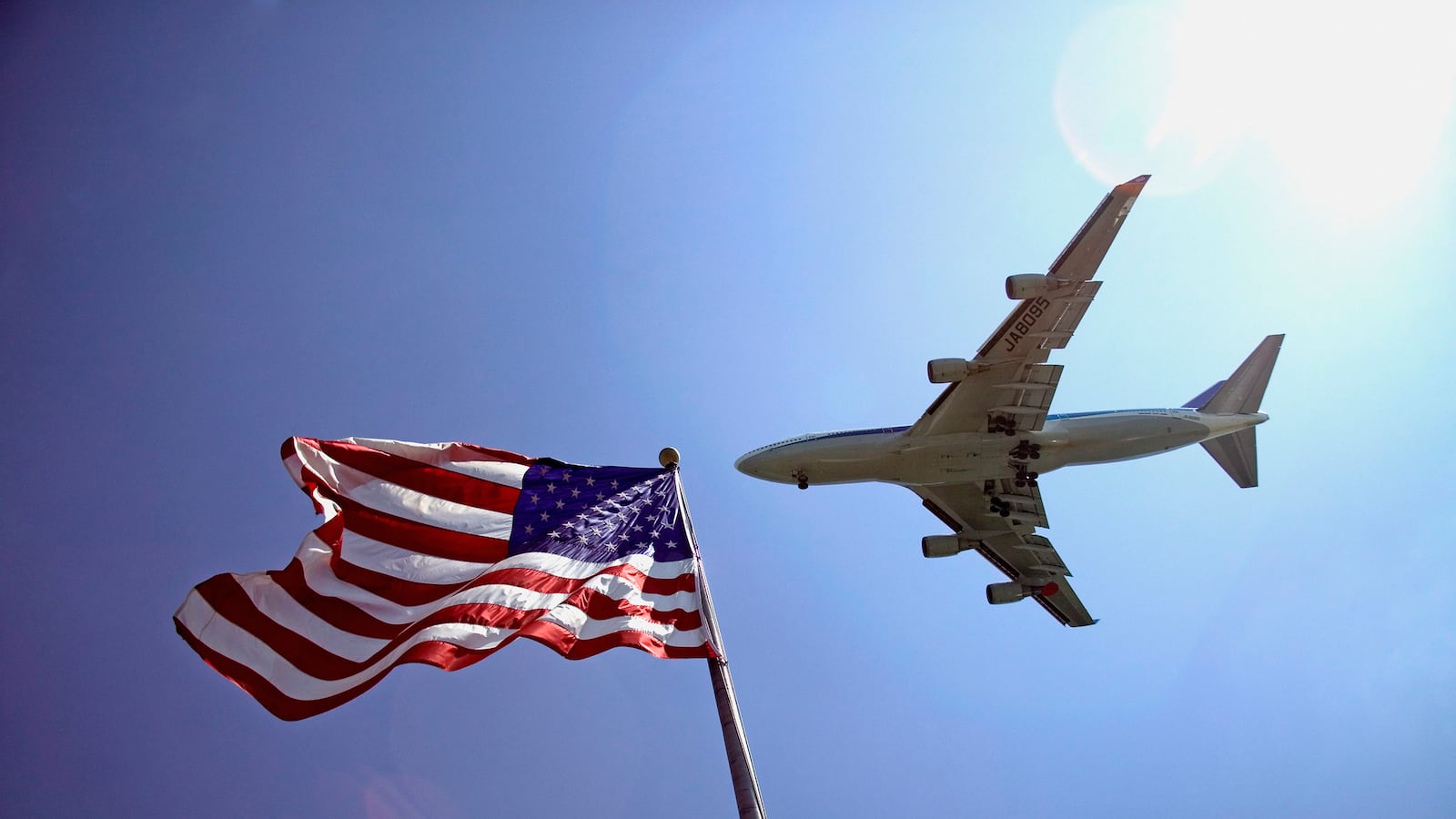Traffic was horrible, but somehow you weaved through it and arrived at the airport just in time with your wife and young child. Visions of a much-needed family vacation dance through your head as you sit in the boarding area.
Finally, the gate agent calls your row to board. You approach, hand your tickets to the agent with a smile and lift up your 6-year-old son to carry him down the jetway.
But before you can move, you hear an odd beeping sound as your ticket is scanned. The agent kindly instructs you to step aside while they investigate. A few minutes later another airline representative returns, along with security, informing you that someone in your party is on the No Fly list. And the most shocking part? It’s your 6-year-old child.
That, in essence, happened to a family I know. The trip was canceled because their child’s name was on the No-Fly List. Was their kid a pint-size international jewel thief, or a baby terrorist? Nope, but his name was close enough to someone who was, so his name made it to the list.
And that’s far from an isolated incident. I have personally known many people, both of Arab heritage and just plain old “white folks,” who were mistakenly put on the No-Fly list. Estimates are that there are more than 20,000 people on the list, but no one knows for sure because it’s a secret.
When you hear about how the No-Fly list is administered, it truly sounds like something from the former Soviet Union. Let’s start with the fact that you can be secretly placed on the list and not be told you are on it until you arrive at the airport ready to depart.
And getting on the list is easy. A federal agency simply has to “nominate” you if it has “reasonable suspicion”—which is slightly more than a hunch. The final determination is then based on “secret” criteria.
And if you are placed on the list, the government doesn’t have to tell you why. So good luck trying to use the DHS’ redress system if you have no idea why you are on the list in the first place. Hopefully, you enjoy long train or bus rides, because you will not be going above ground level for a while—if ever again.
But a federal court ruling on Wednesday appears to be changing the system for the better. The case involved 13 plaintiffs of diverse backgrounds who had been on the list. Their claim was that the procedures and safeguards employed in the administration of the list are constitutionally deficient (PDF).
The plaintiffs in this case are all either U.S. citizens or permanent residents, and four were U.S. military veterans (PDF). For example, there’s Raymond Earl Knaeble, an Army veteran who had been working in Kuwait. In 2010, he flew to Colombia to marry his wife. After the wedding, Knaeble attempted to board a flight to return to the United States but was informed at the airport that he was on the list. He was then questioned by the FBI but still not permitted to board. As he was unable to return to the United States for a required medical examination, his new job offer was rescinded.
And then there’s Ibraheim Mashal, a veteran of the Marine Corps, who was not permitted to board his flight from Chicago to Spokane, Washington. FBI agents later questioned Mashal and informed him that his name would be removed from the list if he worked with the FBI as an informant. When Mashal then asked to have his attorney present before responding to any further questions, the FBI agents ended the meeting. As a result of not being able to fly, Mashal lost business and was unable to attend funerals and weddings of family members.
Ayman Latif, another Marine Corps vet, had been living in Georgia when he and his family decided to move to Egypt from 2008 to 2010. When Latif wanted to return to the United States, he was told at the Cairo airport he was on the list. Since Latif could not return to the States, he was unable to be evaluated for his military disability benefits. Consequently, he lost the $899 a month he had been receiving in veteran’s benefits.
The decision this week by Federal District Court Judge Anna Brown of Oregon is a great step in updating this relic from Bush’s “war on terror.” As the judge noted, “The right to travel is a part of the ‘liberty’ of which the citizen cannot be deprived without due process of law under the Fifth Amendment.”
Brown was especially concerned about the lack of safeguards to protect individuals from being erroneously placed on the list and the lack of an effective procedure to be removed from it. The judge cautioned (PDF) that “without proper notice and an opportunity to be heard, an individual could be doomed to indefinite placement on the No Fly List.”
Judge Brown has given the federal government until July 14 to provide a detailed report on how it will address the procedural inadequacies posed by the current system. I think few would disagree that the court’s ruling that affords greater protections and makes the system more transparent. My question is: Why didn’t the Obama administration make these changes before this case?






